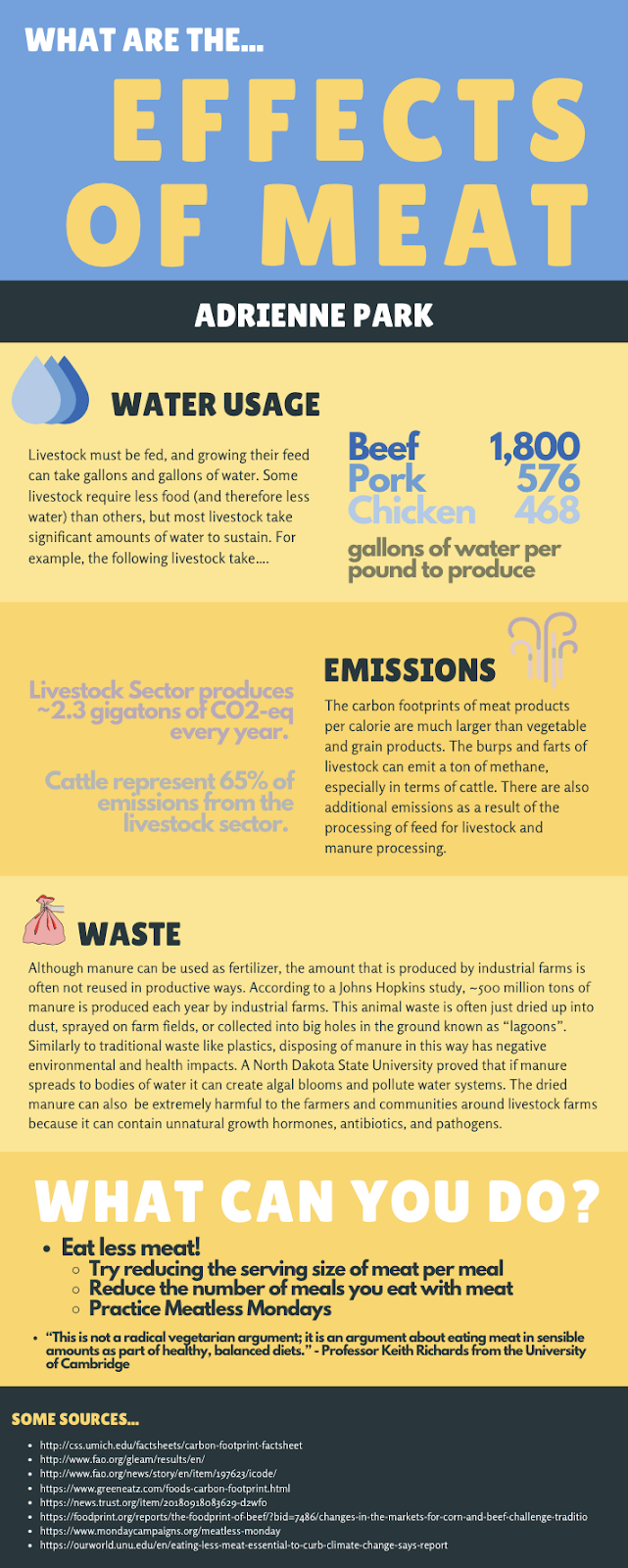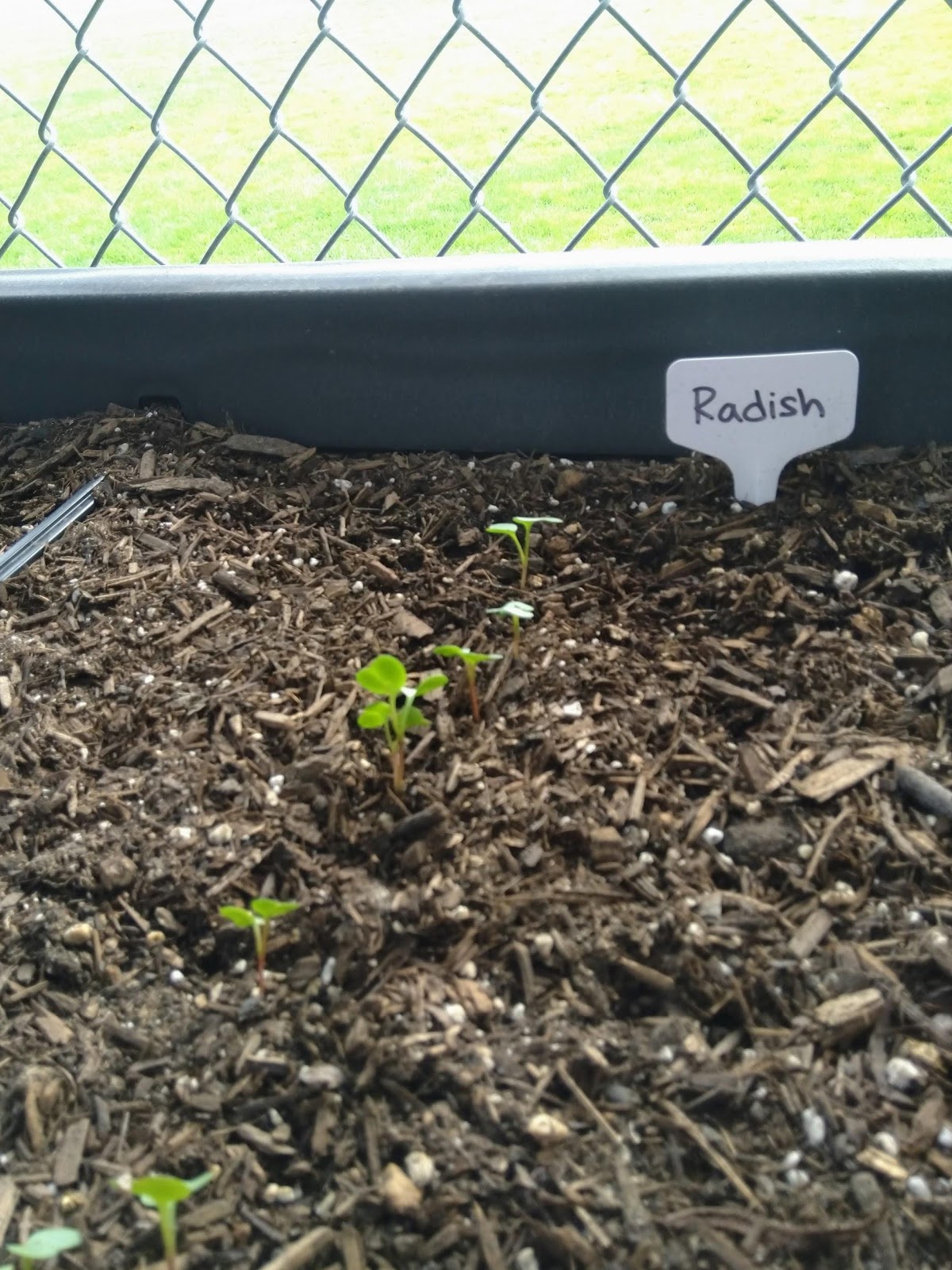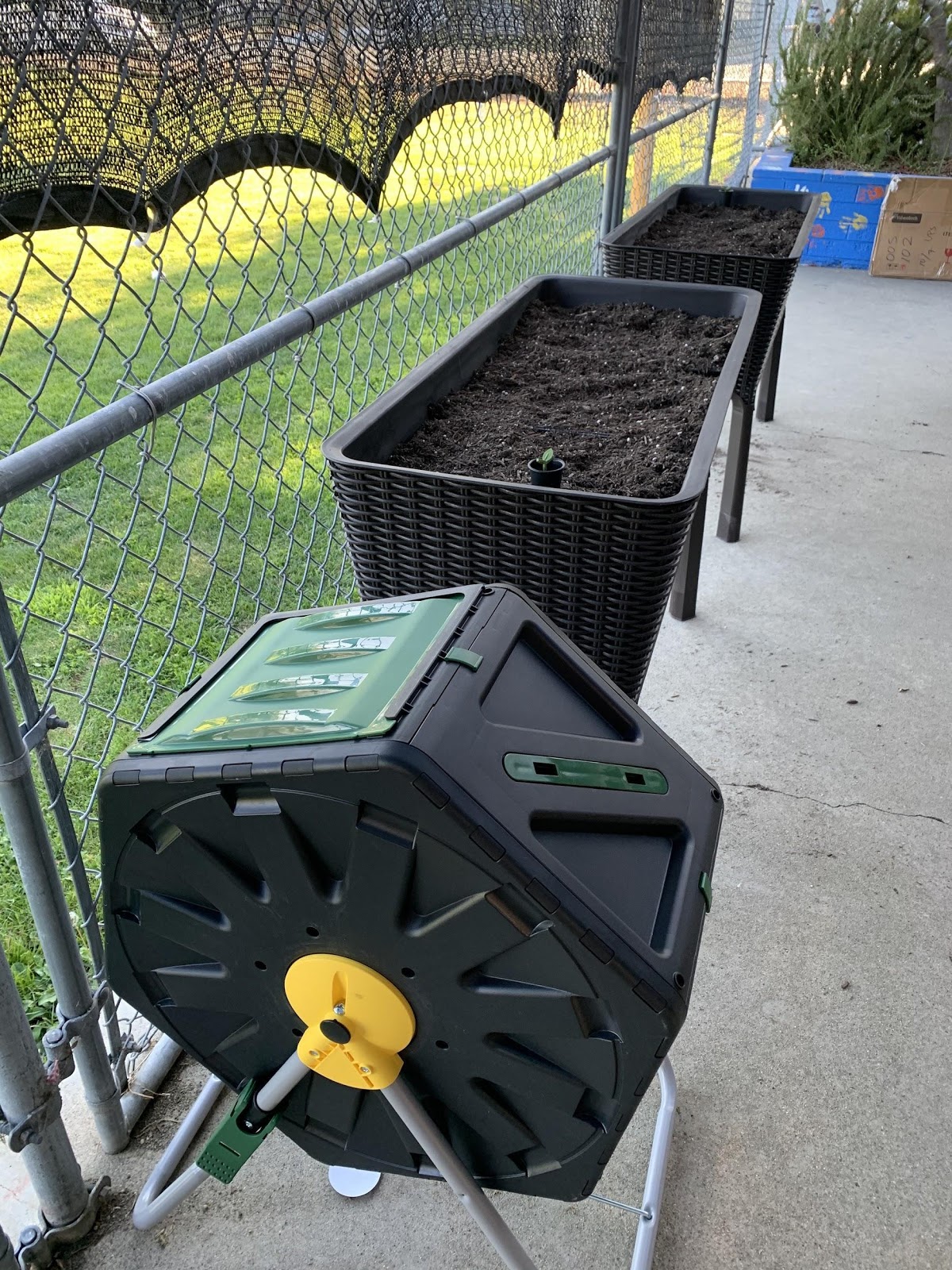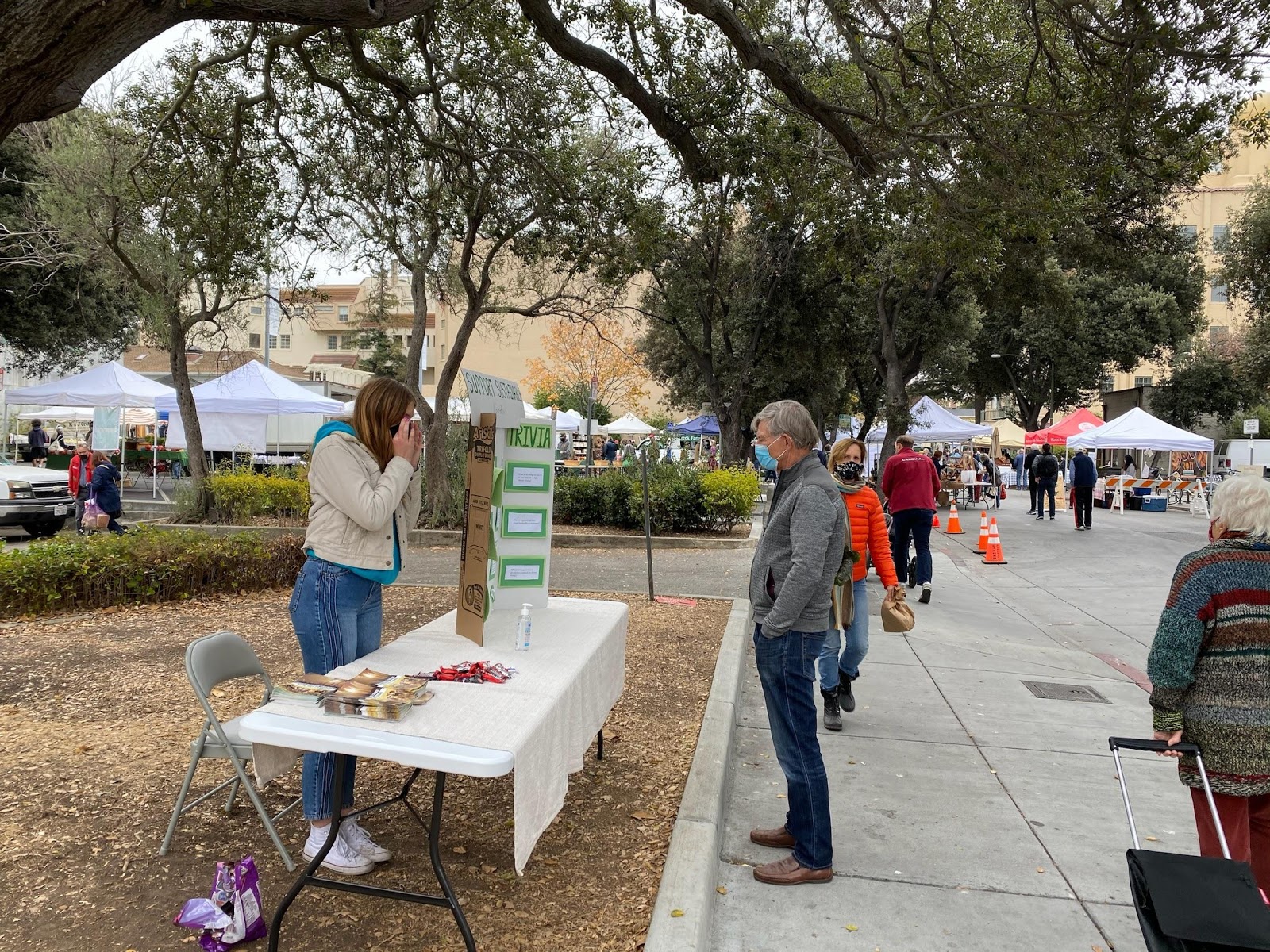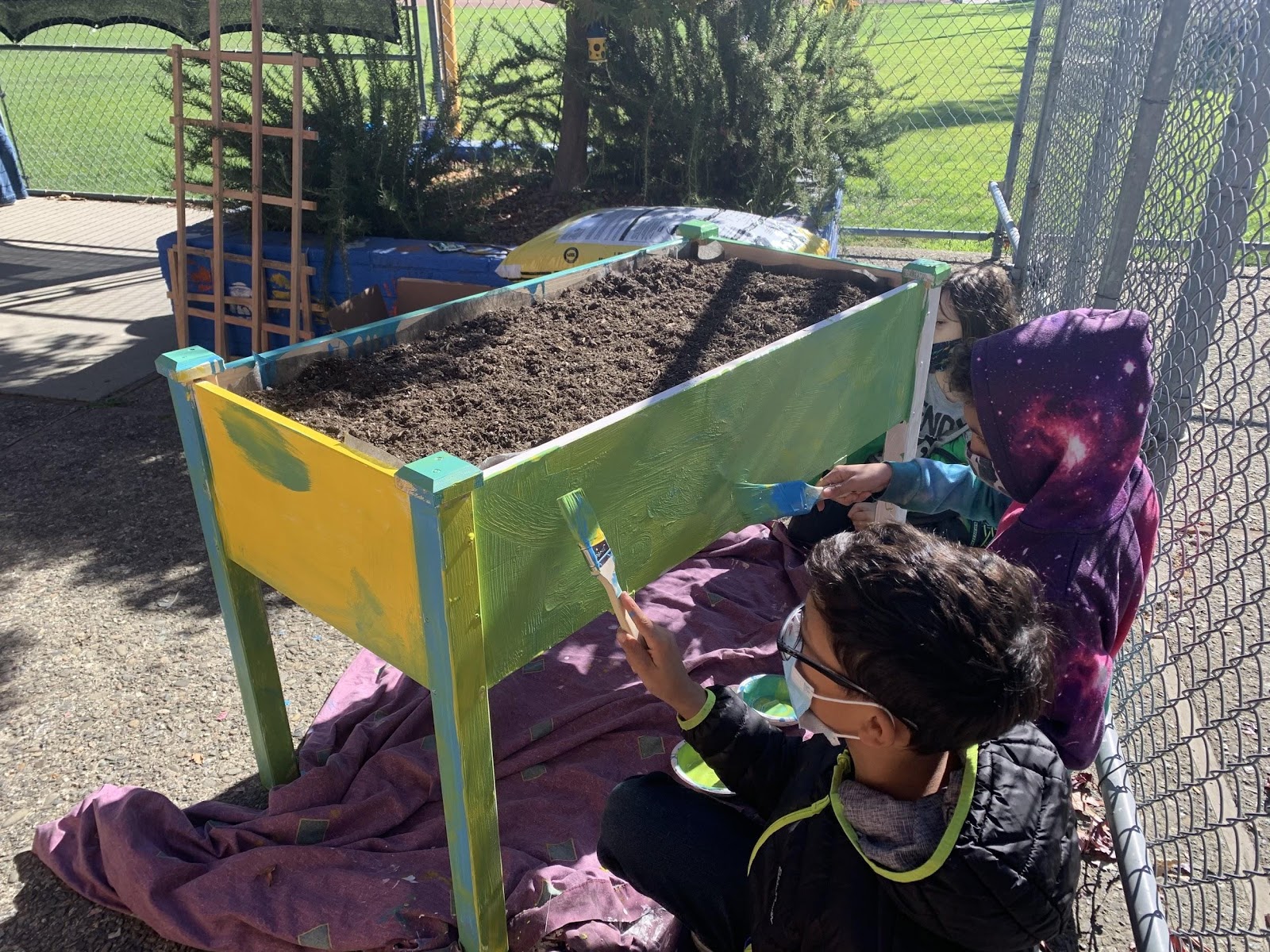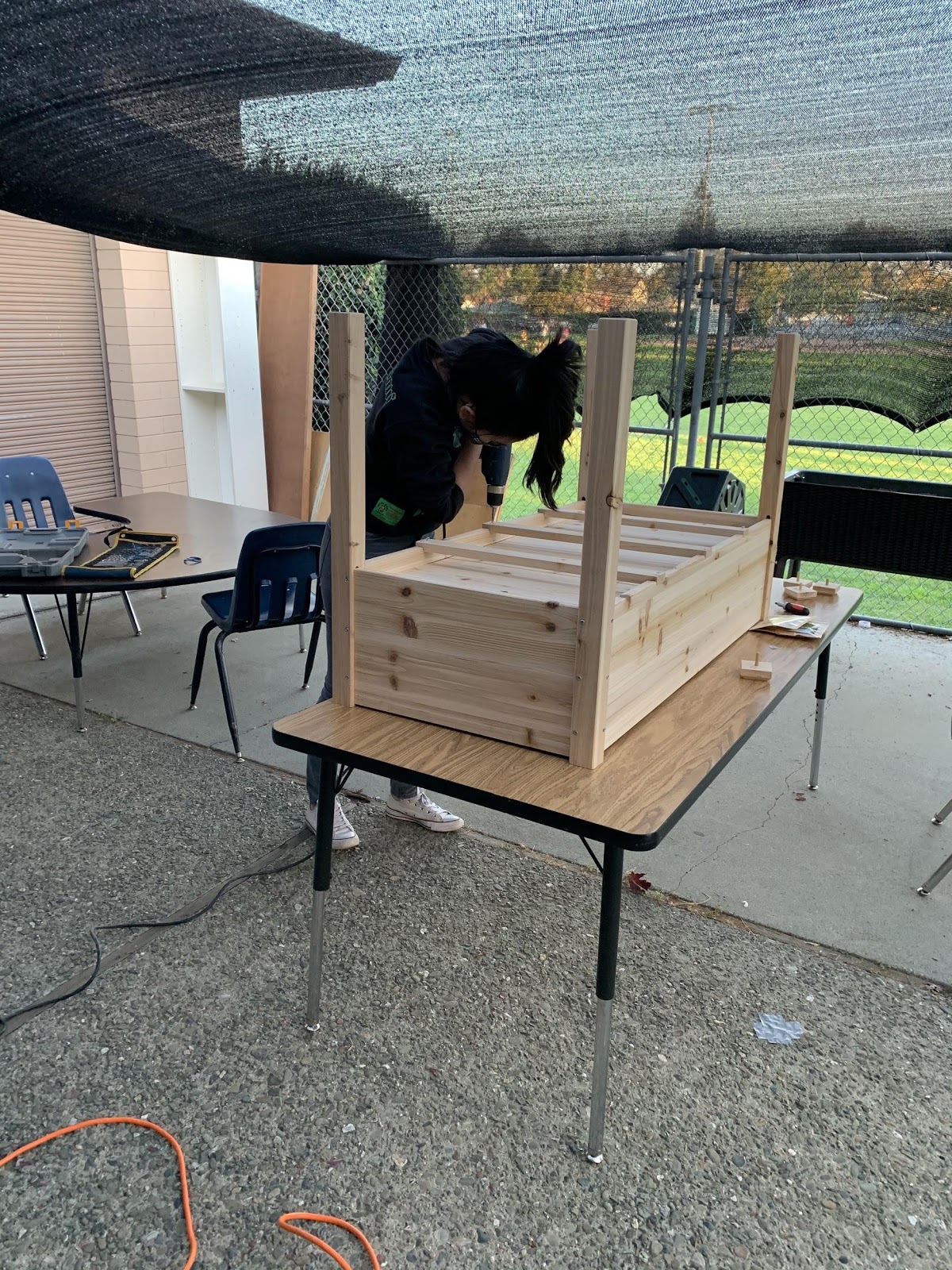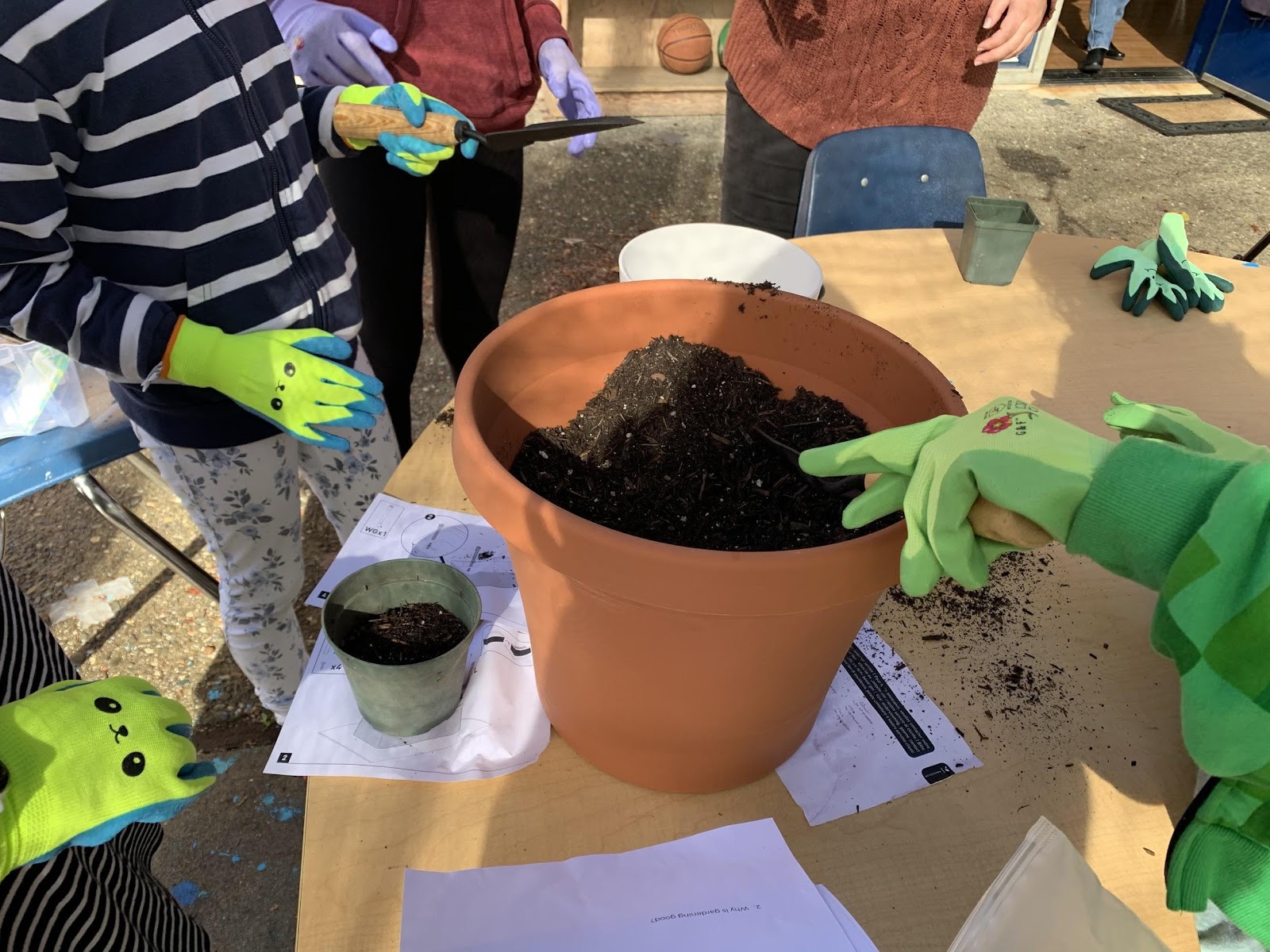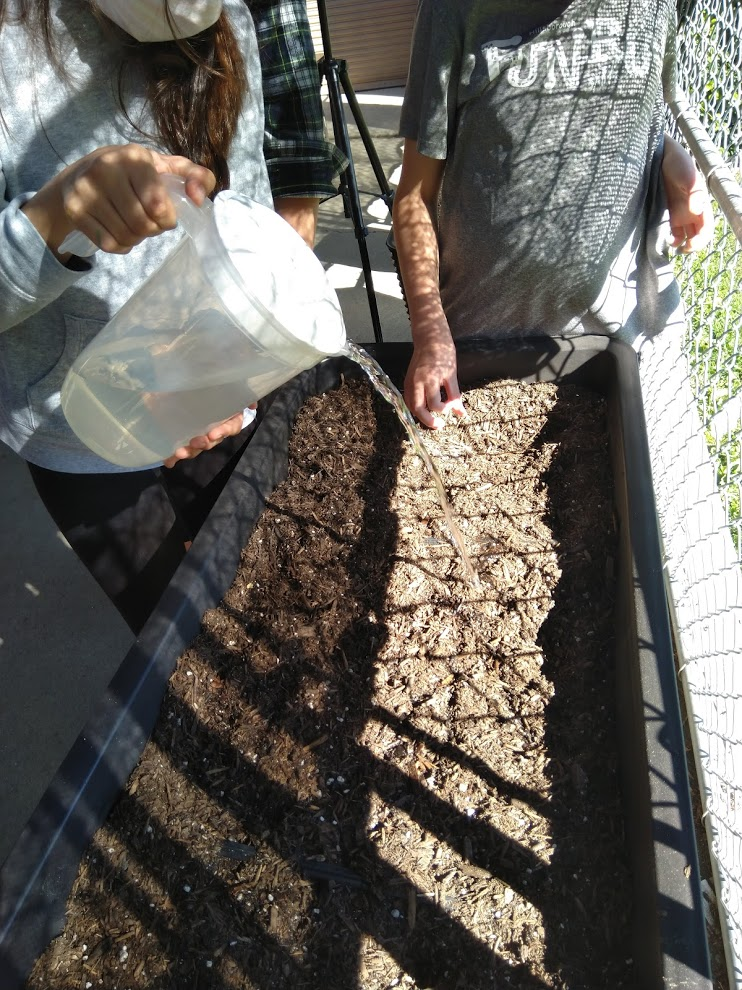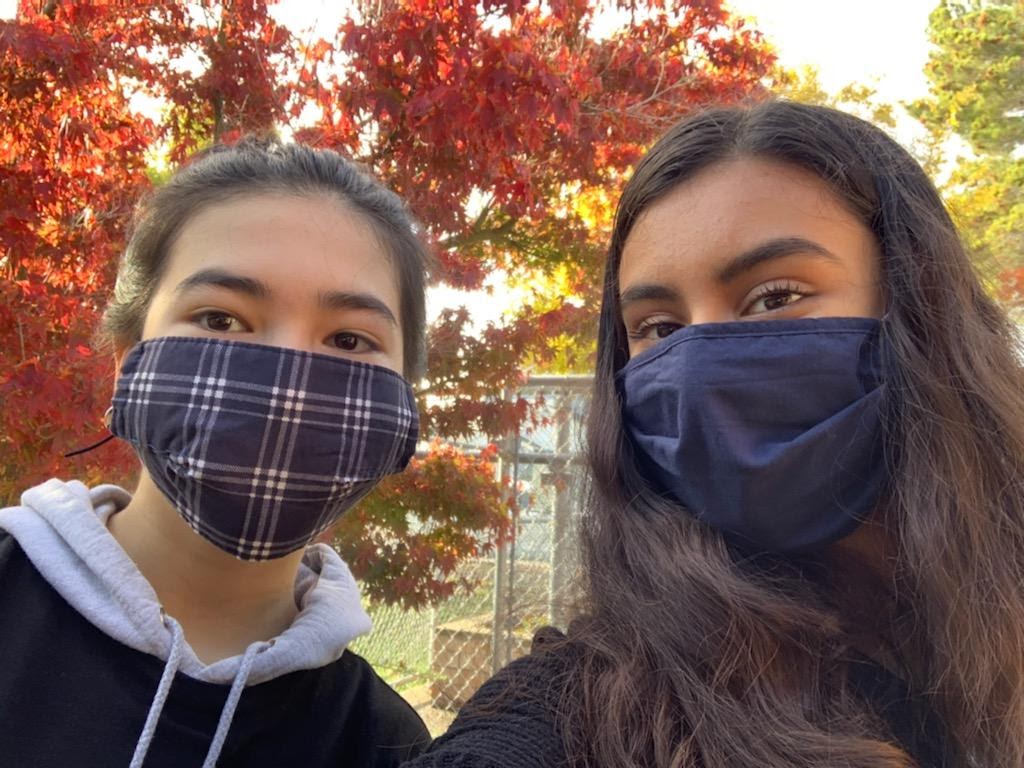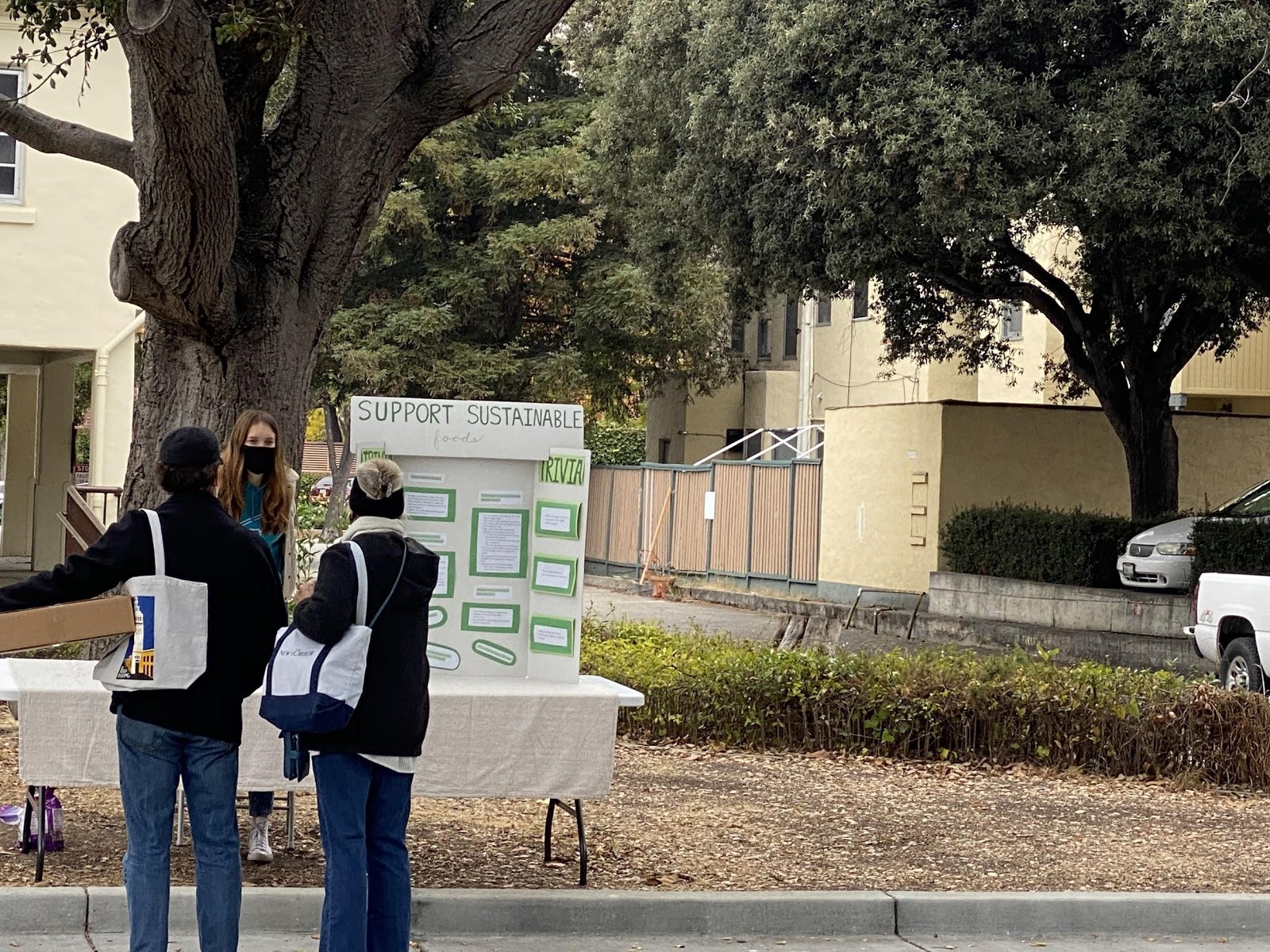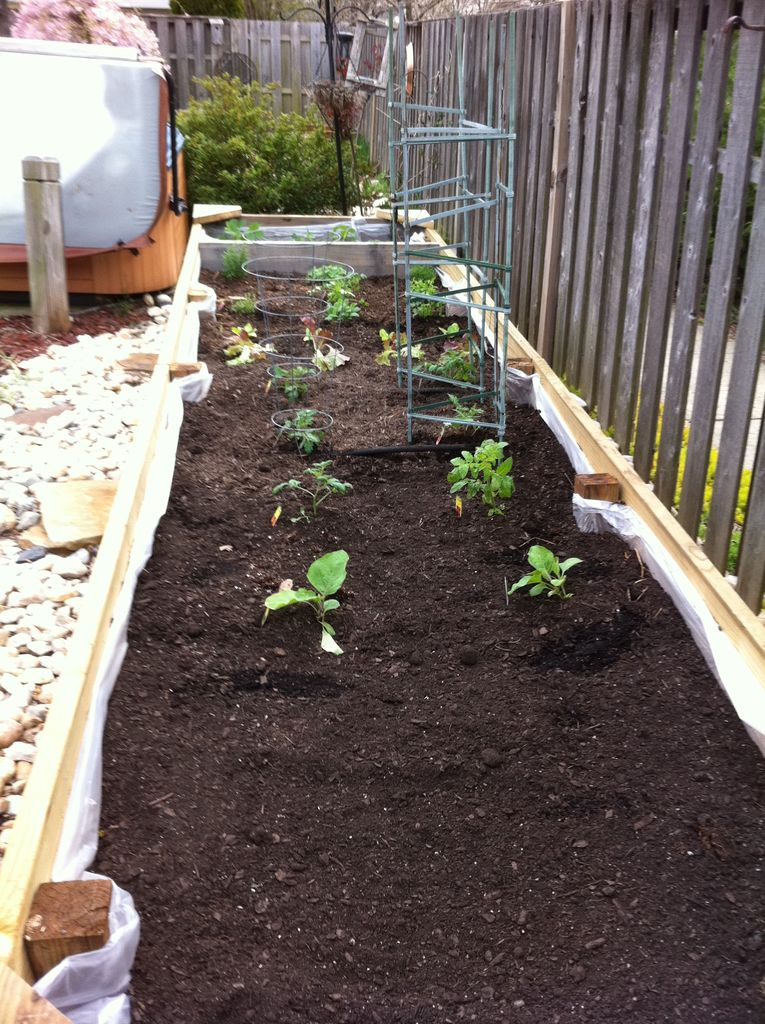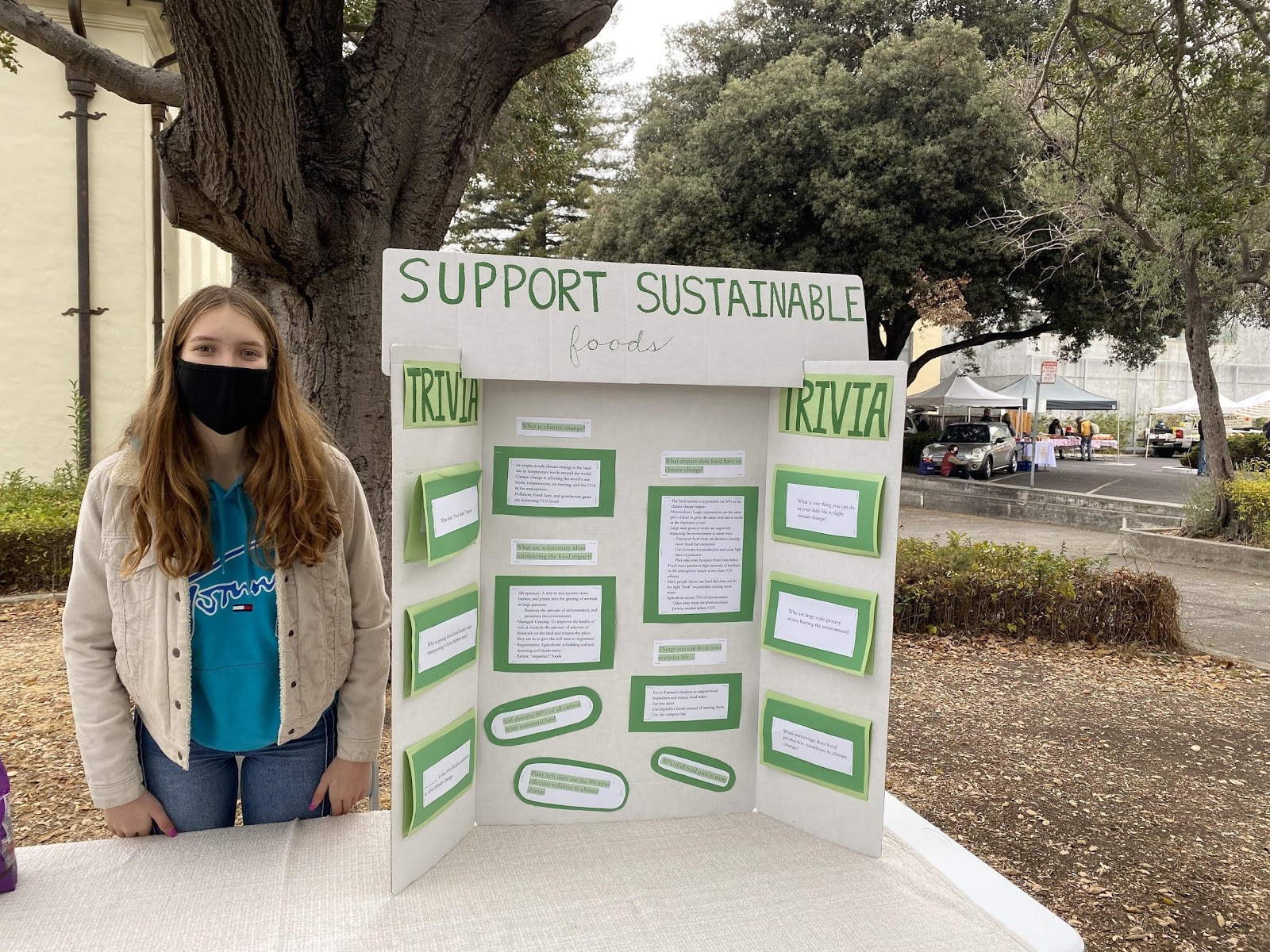Food
The type of food we eat, where it comes from, how it was produced, and where we buy our food products, all play a part in the climate crisis. This is because producing food requires natural resources, like land and water, and also generates greenhouse gas emissions during food processing and shipping. The following YCA projects are focused on creating sustainable food systems within their local communities.
Designing and Implementing a Home Garden
Community Impact Project Leads – Natalie K. (The Drew School)
Project Description: In this project, Natalie made a usable and functional. She did research on the benefits of local food and gardening at home along with how best to remove the overgrown components of her backyard garden plot to implement a new garden that she is excited to continue to use outside of the YCA program. She also plans to develop educational materials that can be shared to show the process and the benefits of setting up a garden at home in her community.
Read Natalie’s Case Study
Growing and Sharing Food in San Mateo County
Community Impact Project Leads – Cece H. (St. Ignatius School)
Project Description: In this project, Cece worked with her school’s middle school campus to restore the existing garden beds so that food can be grown and shared. Cece researched and advocated for the essential resource of food to be grown locally and taken care of by people who know where their food comes from so as to make more positive change and climate action in their community.
Read Cece’s Case Study
Meatless Mondays at Crystal Springs Upland School
Community Impact Project Leads – Hanna P. (Crystal Springs Upland School)
Project Description: In this project, Hanna advocated for change in the cafeteria at her school to host Meatless Mondays. She worked with the cafeteria staff and presented at Assembly to get the whole school to vote on implementing Meatless Mondays.
Read Hanna’s Case Study
Redistributing Food from Farmer’s Markets to Those in Need
Community Impact Project Leads – Gianni C. and Philip H. (Crystal Springs Upland School)
Project Description: In this project, students took on the challenge capturing organic food at the end of their local farmer’s market and redistributing this valuable resource to those in need. Students built relationships with farmers and those who received the organic food, learning along the way what matters to our community and how to foster connections.
Read Gianni’s Case Study
Read Philip’s Case Study
Vegan Food for a Sustainable Future
Community Impact Project Leads – Alexandra Bieser, Chloe Khachadourian, Ujala Chauhan (Carlmont High School)
Project Description: In this project, students took on the challenge of educating their peers on nutrition alternatives to meat to reduce waste and greenhouse gasses associated with climate change. They created an Instagram page for vegetarian and vegan recipes along with hosting an in person event during lunch at Carlmont High School to hand out vegan pizza and vegan cookies.
Read Chloe’s Case Study
Read Ujala’s Case Study
COMMUNITY GARDEN AND EDUCATIONAL WORKSHOPS AT MEADOW HEIGHTS ELEMENTARY SCHOOL
Community Impact Project Leads – Caroline Lim, Emily Duncan, Olivia Murray and Roisin Scallon (Hillsdale High School)
Project Description: For this project, this group of students came together to establish a community garden at an elementary school many Hillsdale residents attend. Using the familiar campus set up and established relationships with staff and administration, this group was not only able to design and implement a community garden at Meadow Heights but they took this project one step further to offer continued climate change education workshops at the garden site throughout the fall 2021 semester.
Read Emily’s Case Study
Read Olivia’s Case Study
Read Roisin’s Case Study
FOOD SYSTEMS EDUCATION CAMPAIGN
Community Impact Project Leads – Alison Coffman and Kaia Henderson (Hillsdale High School)
Project Description: For this project, Alison and Kaia researched local food deserts to identify the problem of food insecurity in their community. Based on this research, this group identified a plot to establish a community garden to include edible food items. This garden is meant to function as a source of food and education in the community of what it looks like to live more sustainably.
Read Alison’s Case Study
Read Kaia’s Case Study
SUSTAINABLE FOOD: MEATLESS MONDAYS
Community Impact Project Leads – Adrienne Park (The Nueva School)
Project Description: This project worked to restore Meatless Mondays (for when students are back on campus at The Nueva School) and helped to educate the Nueva community about the effects of eating meat (during remote learning and beyond). In previous years the lunch system at the Nueva School followed Meatless Mondays in hopes of reducing the negative environmental impact of school meals. However, there was a lack of education around the positive impacts eating less meat brings, and thus many students were not receptive to the initiative. Learn more about Adrienne’s project below.
FEEDING SUSTAINABILITY THROUGH GARDENING
Community Impact Project Leads – Katinka Lenneman & Mira Bhatt (Carlmont High School)
Project Description: Katinka and Mira’s project set out to spread awareness about local gardening and composting as well as educating younger students on sustainable food systems. Together, they built a garden at a local elementary school and hosted three separate hands-on and socially distanced workshops with students to teach them about the impacts of climate change on our food systems and gain experience working in a garden. Learn more about Katinka and Mira’s project below.
Read Katinka’s Case Study
Read Mira’s Case Study
THE CARBON FOOTPRINT OF OUR DIETS
Community Impact Project Leads –Annika Kaval (Menlo Atherton High School)
Project Description: For Annika’s project, she worked to educate the people in her community about food production and what people can do in their daily life to combat climate change. To do this, she was able to secure a spot at the Menlo Park Farmers Market and set up a booth to start conversations with others around the environmental impact of the food we eat and also shared how our diets can be a big solution to combat the impacts of climate change. Learn more about Annika’s project below.
Read Annika’s Case Study


